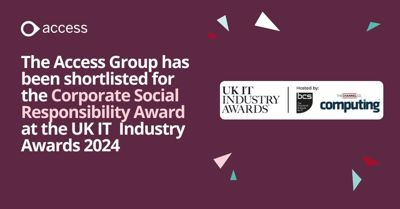The digital future for technology enabled care
The digital future for technology enabled care is continuing to grow year on year, and it is imperative that local authorities help support the vulnerable people in their communities to be able to live more independent lives for as long as possible.



In the words of our customers:
In the news:
AI sensors on fridges and kettles helping vulnerable people to live independently - GOV.UK
Speaking from a trip to see the Tech Enabled Care solution in Sutton, AI and Digital Government Minister Feryal Clark said:
“AI has immense potential to make our lives easier and improve public service. The technology we are together sharing with the public today includes shining examples of innovation that does everything from speeding up crucial applications for bigger bins, to helping people live independently.
Being transparent with the detail of how we are putting AI to work in public services is crucial to our plans to use technology to improve public services, which is a key part of our Plan for Change.”
Other initiatives include AI-enabled fridge sensors and connected kettles are being used to detect changes in the daily routines of vulnerable people that could indicate a decline in health and ultimately lead to a fall, thanks to technology used by the London Borough of Sutton.
Helping people who would otherwise need additional care, the technology uses sensors to spot changes in behaviour, like missed meals, a skipped cup of tea or whether a door has been left open for too long, before AI analysis is used to detect whether something might be wrong. An alert is then sent to close family members or carers so they can stop by to check on how they are and offer additional support if needed.



Details of the technology, which was developed by Loughborough technology company The Access Group and is used by service delivery partner Medequip Connect in Sutton, have been released today alongside nine other public sector organisations setting out how they use AI and algorithmic tools.
Councillor Marian James, Lead Member for People Services at the London Borough of Sutton said:
“Research shows that people live well for longer when they can maintain their sense of independence and dignity by remaining in their own home. That’s why we are using the latest digital technology to enable our residents to continue living their lives independently within the comfort of their own home, but with the peace of mind that support is available when they need it.
The pressures facing our adult social care services show no sign of easing, so I’m proud the Council is taking this forward-thinking approach to find solutions that will reduce the pressure on the system, as well as being beneficial for our residents.”

Access Technology Enabled Care
Monitor daily activity patterns to identify changes and subtle trends which human observation can easily miss. Use AI to proactively identify where interventions might precede serious risks relating to falls, mobility, malnutrition, hydration, temperature, UTI onset etc. Combine with traditional reactive alarm functionality, and integrate to other data sources
Delivers:
- Peace-of-mind from 24x7 monitoring
- Avoided costs of healthcare escalation
- Ability to dynamically manage care packages to reduce cost
Benefits
- Reduced ‘front door’ waiting lists and over-prescription of in-person care with sensor-based assessments for all
- Least restrictive life and safeguarding for people whose needs aren’t met by traditional telecare
- Reduced dependency and cost of care at scale
- Insights from Care Plan reviews and panels
- Prompts to close cases.
- Sensors and app reassure a resident’s family of their safety and wellbeing
Outcomes
Delivering a proactive independent approach to care
Please complete the form below
Find out all you need to know about Access Technology Enabled Care software
The digital future for technology enabled care is continuing to grow year on year, and it is imperative that local authorities help support the vulnerable people in their communities to be able to live more independent lives for as long as possible.
Fill in the form and our team will call you to discuss your requirements at a time to suit you. We can also provide you with some great live examples of how our technology is allowing care professionals and receivers to make better care intervention decisions that improve person outcomes.



